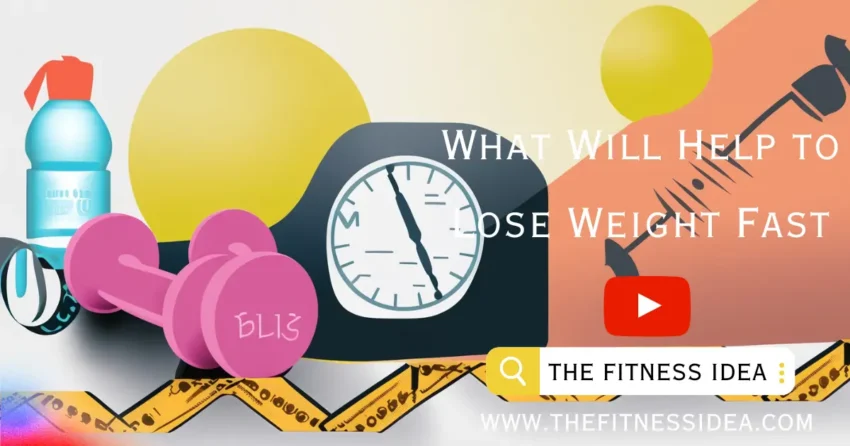What Will Help to Lose Weight Fast?
Losing weight can be a challenge, but it is possible to lose weight fast if you are willing to make some changes to your diet and lifestyle.
Here are some tips that can help you lose weight fast:
Balanced and Nutritious Diet:
A crucial aspect of rapid weight loss is maintaining a balanced and nutritious diet. Focus on consuming whole, unprocessed foods rich in fiber, vitamins, and minerals. Include plenty of fresh fruits, vegetables, lean proteins, and whole grains in your meals. Reducing your intake of refined sugars, saturated fats, and empty calories will promote fat loss and boost your metabolism.
Portion Control:
Even with healthy foods, portion control is essential for weight loss. Keep an eye on the portions on your plate to prevent overeating. Eating smaller, more frequent meals throughout the day can prevent extreme hunger and binge eating, while also keeping your metabolism active.
Regular Exercise:
Incorporating regular exercise is a powerful way to accelerate weight loss. Engage in a combination of cardiovascular exercises, such as running, cycling, or swimming, to burn calories and improve your cardiovascular health. Additionally, strength training exercises, like weightlifting, can help build lean muscle, which aids in burning fat and increasing your metabolic rate.

High-Intensity Interval Training (HIIT):
HIIT workouts are time-efficient and highly effective for rapid weight loss. These intense bursts of exercise, followed by short recovery periods, challenge your body and boost calorie burn, even after you finish exercising. Two to three times each week, try adding HIIT workouts to your schedule.
Stay Hydrated:
Drinking plenty of water is vital for weight loss. Water helps flush toxins from your body, boosts metabolism, and can even reduce your appetite. Aim to drink at least 8-10 glasses of water per day, and consider replacing sugary drinks with water or herbal teas.
Get Enough Sleep:
Restful sleep plays a crucial role in weight loss. Sleep deprivation can cause hormone disruption and weight gain. Aim for 7-9 hours of restful sleep each night to aid your weight-loss attempts.
Manage Stress:
Stress can contribute to emotional eating and hinder weight loss progress. Practice stress-relieving exercises like yoga, meditation, or time spent in nature. Managing stress effectively will improve your overall well-being and help you stay focused on your weight loss journey.
Track Your Progress:
Keeping track of your meals, exercise routine, and progress can be motivating. Consider using a journal, mobile app, or fitness tracker to monitor your food intake, workouts, and weight loss milestones.
Avoid Crash Diets:
While rapid weight loss may be tempting, crash diets or extreme calorie restriction can harm your health and lead to nutritional deficiencies. Focus on sustainable, long-term lifestyle changes instead of quick fixes.
Conclusion
Losing weight fast is possible, but it is important to do it safely and to make gradual changes to your diet and lifestyle. With time and effort, you can lose weight and improve your overall health.
